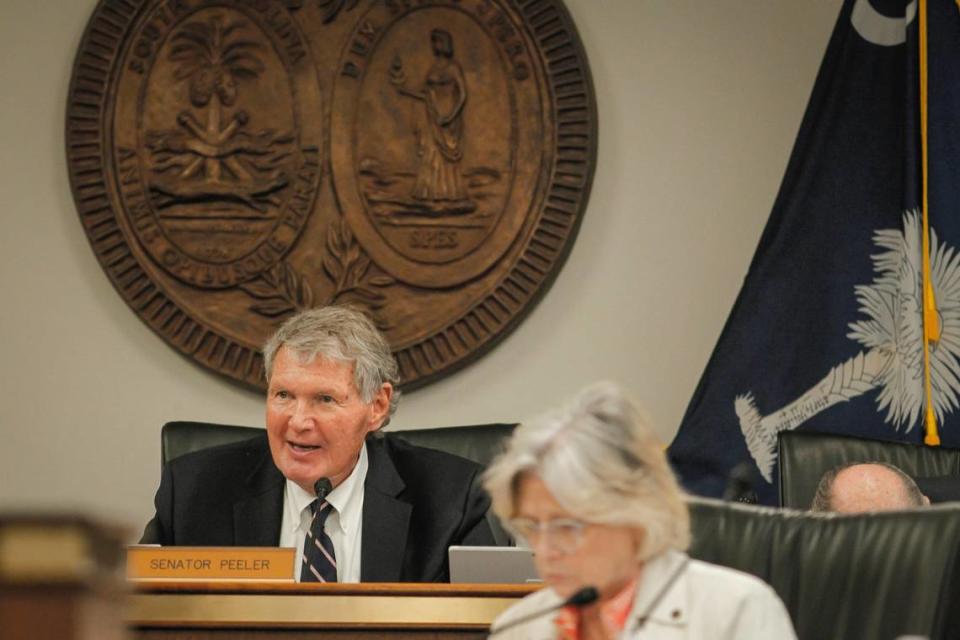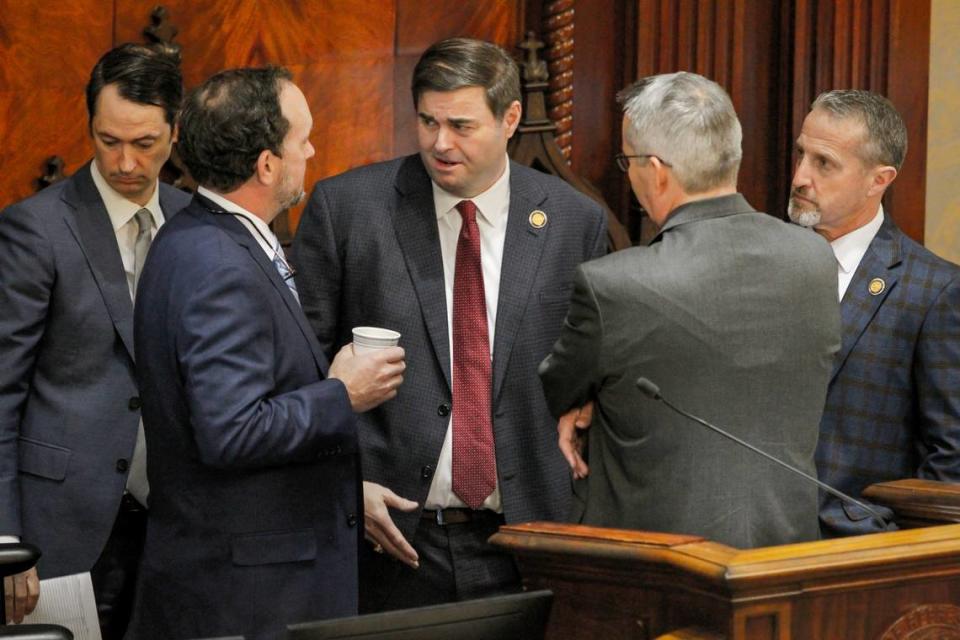Fight over USC, Clemson, MUSC money could hold up pay bumps for state employees, teachers
An impasse over how much money to send to Clemson University, the University of South Carolina and the Medical University of South Carolina is holding up a budget deal that includes raises for state employees, money to increase minimum teacher pay and millions of dollars to freeze college tuition rates.
Lawmakers wanted to complete budget work by the end of the month, but the lack of a deal this week from a legislative conference committee puts meeting a self-imposed June 1 deadline in jeopardy.
Because of the impasse, the plan for House members to come into session Wednesday to vote on a budget deal is now canceled, and will meet at the call of the chair.
As lawmakers try to workout differences, they do have one option to keep the state operating after the start of the next fiscal year, which begins July 1.
The House already has adopted a what’s known as a continuing resolution as a contingency plan if a spending plan isn’t agreed to. A continuing resolution would keep spending levels the same as this current year, but it also would prevent state employee and teacher pay increases from going forward as well as block the extra money planned for colleges and universities to keep their tuition rates frozen for another year.
The Senate still needs carry out one more vote before the continuing resolution can go to the governor. That vote is expected Tuesday.
Budget writers are planning to give state employees a $2,500 pay raise or 5%, whichever is greater. For teachers, each cell in the state’s minimum teacher salary schedule, which pays teachers based on their experience and education level, would increase by $2,500. School districts have the option of paying teacher above the salary schedule.
The budget impasse also could hold up recruitment and retention pay bumps for state law enforcement, nurses and mental health professionals.
The tension over funding for the state’s three main public universities has taken the spotlight, sources with knowledge of budget deliberations told The State.
For USC, House budget writers wanted to spend $52.8 million in annual money, plus $37.6 million in one-time money for the state’s flagship school.
The Senate’s proposal for USC included $35.7 million in new annual money, plus $42.6 million in one-time dollars.
For Clemson University, Senate budget writers want to give the school about $25.5 million in new annual money, plus $75 million to construct a veterinary school ,and $15.6 million in additional one time expenses. The veterinary school would be the state’s first and is viewed as way to prevent students from leaving the state become vets elsewhere.
The House budget only included $25.8 million of new annual money for Clemson. That figure includes only $7.5 million for College of Veterinary Medicine.
For MUSC, $6.8 in million in additional annual funding and $5 million in one time funding is included in the House budget. The Senate has about $6.8 million in additional annual money and $40 million of one time money for MUSC.

Budget writers have tried to keep funding parity for the schools in the annual appropriations process, keeping the amount of money budgeted for each of the three big schools within the ballpark of one another as opposed to the schools competing with one another.
In years past, when the medical school at USC or the children’s hospital at MUSC received funding from the General Assembly to start construction, the other schools received additional dollars.
During this week’s negotiations, as budget negotiators thought they had a deal or were at least close, House Speaker Murrell Smith wanted to $15 million more in annual money for USC for a STEM initiative for high-demand areas. The House proposed the additional funding as one way to maintain parity among the schools.
One area where budget writers notably diverged was money for USC’s Science and Technology Center. The Senate proposed $10 million, while the House put in $34 million. A potential compromise would have added $14 million to the Senate’s number.

Negotiating throughout the week
Budget conference committee members — Senate Finance Chairman Harvey Peeler, R-Cherokee; Senate President Thomas Alexander, R-Oconee; and state Sen. Nikki Setzler, D-Lexington; House Ways and Means Chairman Bruce Bannister, R-Greenville; state Rep. Bill Herbkersman, R-Beaufort; and state Rep. David Weeks, D-Sumter — along with their staffs had been working on a budget compromise during the week, even though House members were involved in marathon debate on abortion restrictions.
Peeler declined to comment Thursday night on the budget debate, and other conference committee members did not return requests for comment.
On Thursday, it appeared a deal was imminent on closing the gap between the House’s $13.8 billion spending plan and the Senate’s $13 billion plan.
While budget watchers waited in the Gressette Office building, Peeler, negotiating his second budget, and Bannister, negotiating his first budget, and their chiefs of staff privately continued to talk in Peeler’s office.

Smith, who previously served as Ways and Means chairman, has been “interested” in the negotiations and has worked closely with House budget writing committee, his office confirmed.
After hours of private conversations among a handful of lawmakers and staff members and a brief conference committee meeting shortly after 6 p.m., committee members returned to their offices to try to finalize a resolution.
But around 8 p.m. Thursday, when Bannister arrived back at Gressette, he told a reporter it wasn’t a good sign.
About 15 minutes later, lobbyists and budget watchers who were gathered waiting for a resolution were told no deal would be coming that evening.


